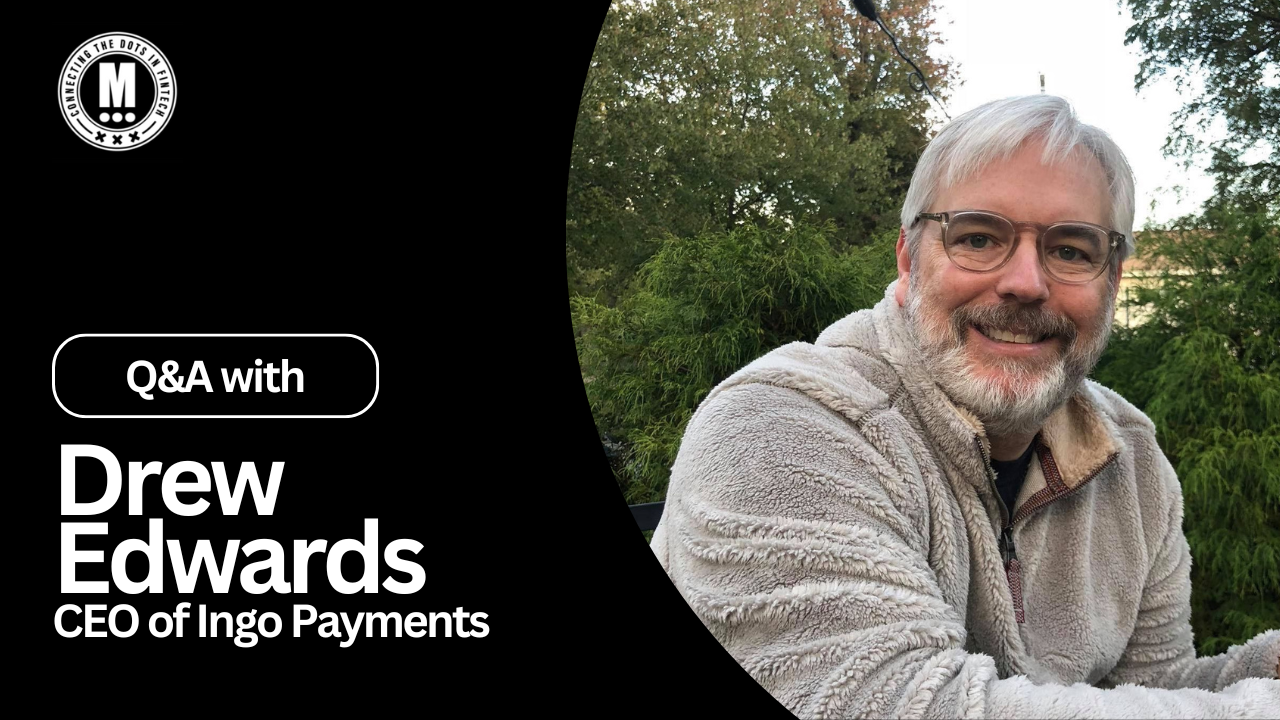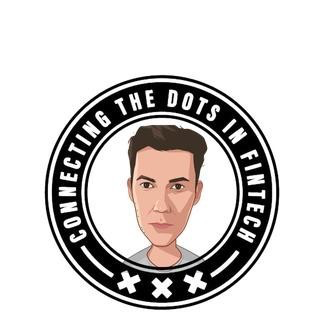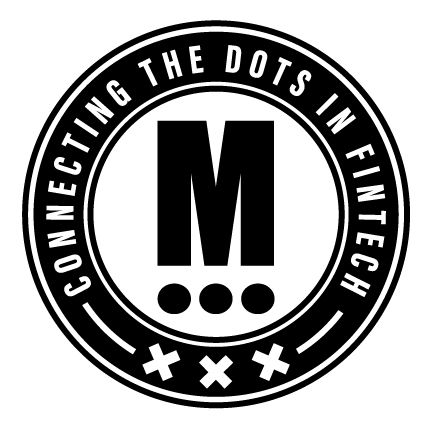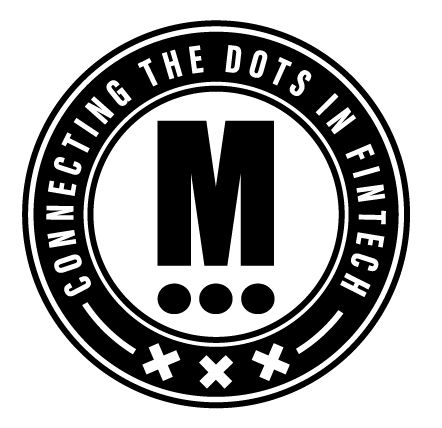Q&A with Drew Edwards, CEO of Ingo Payments

Today, I’m excited to share my latest Q&A with Drew Edwards, CEO of Ingo Payments.
Before diving in, I recommend:
- Following him on LinkedIn,
- Checking out Ingo Payments to discover instant, digital, and secure ways to access your money.
Let’s get to it!
Let's start with the big picture. How do you see the FinTech landscape evolving in 2025?
Look, I've been in this game since the 80s, and I'll tell you - we're in the middle of a healthy shakeup in FinTech and banking-as-a-service (BaaS) which is quickly turning into a catchall term for embedded banking.
It reminds me of so many other cycles I've seen: First, you get all the institutional money flowing into creative types who build great customer experiences and slick software. But then reality hits. You actually have to get the banking part right.
When we were doing due diligence for our Deposits acquisition, I kinda felt like I was running into a bunch of burning buildings while everybody else was running the other direction. But here's the thing - we’ve been through several of these cycles and we’re good at banking and at firefighting. I've been doing this safely for 23 years, trusted by regulators, FinTechs and banks. The companies that survive won't be the ones with the slickest UX. They'll be the ones who understand that banking is about risk management first, wrapped in great customer experience.
What do you think is driving this 'shakeup' you mentioned?
It's pretty simple. All these creative ideas and great customer experiences are hitting the wall of regulatory reality. Case in point: Look at what happened recently with some of the BaaS players going under or getting shut down by regulators. The problem isn't always the code breaking or technology - it's that they focus on speed and features without getting the fundamentals right.
When you're moving money, especially when you get to an enterprise scale which is the aspiration of a lot of these embedded banking use cases and companies, you can't just have a beautiful interface, hyper growth, and not good fundamental risk management. You need rock-solid risk management, complete visibility into every transaction, and robust compliance.
Most of these newer players have 8-12 different vendors they're juggling just to process basic transactions. That's like trying to run a railroad where different companies own each section of track–it's a trainwreck waiting to happen.
So what's the solution? How should enterprises approach embedded banking in 2025?
First, stop chasing the shiny new thing. I see so many companies trying to build the next great feature and stitching together as many rails and partners as possible partners. But if you don’t also get the fundamentals right, you’re putting the entire enterprise at risk. What businesses and consumers need is the freedom to move money however they want, whenever they want, safely and instantly. But they need to know that money is safe.
Think about it like this–if you're running an insurance company trying to pay claims after a natural disaster, you don't want six different systems for checks, ACH, cards, and digital wallets. You want one smart and sophisticated platform that can handle any type of payment, manage all the risks, and keep you compliant. And you definitely don't want to be dependent on a bunch of startups that might be immature or partially funded running those payments.
I can also say with confidence that most of your consumers will feel the same way.
You've been pretty vocal about the importance of risk management. Why is that such a focus for you?
[Laughs] Because I've been doing this long enough to see what happens when you get it wrong. Ingo processes billions in money movement each month for some of the biggest brands in the country. When you're operating at that scale, you can't afford to learn risk management lessons the hard way.
Take for instance check fraud: Banks are likely writing off around $25 billion in check fraud losses for 2024. But our [Ingo’s] check fraud rates in some of the largest digital payment and wallet apps are actually going down.
How is that? Because we've spent decades building the risk management expertise and data to catch fraud before it happens. We can instantly verify and guarantee transactions that other providers would just say no to or incur losses.
That's what I mean when I talk about getting the banking part right. It's not only about moving money fast - it's about moving it safely. And in 2025, with regulators breathing down everyone's neck, that's going to matter more than ever.
With potential changes in the new administration ahead, do you think we'll see a pullback in FinTech regulation?
Look, when it comes to financial regulation, the reality is it doesn't matter who's in the White House when companies are losing track of people's money. When you have situations like we saw with these recent BaaS failures where millions in customer funds couldn't be traced or accessed, that's not a political issue. That's just unacceptable.
From what I've seen in this industry, the fundamental problem isn't regulation–it's companies getting into banking without understanding what it really takes to do it safely. Whether it's Republicans or Democrats in charge, when banks and FinTech companies fail and regular people lose money, there are going to be consequences.
The smart play isn't trying to guess which way the regulatory winds are going to blow. It's building your infrastructure the right way from the start, so it doesn't matter who's in charge. That's what we've been doing for 24 years, through multiple administrations, and it's why we're still here.
What advice would you give to enterprises looking to launch or expand their financial services offerings in 2025?
First, don't try to build everything yourself or even piece it together from a dozen different vendors. Find a partner that owns most of the critical infrastructure - the risk management, the money movement, the compliance. The fewer third-party dependencies you have, the better.
Second, think about the scale from day one. A lot of these BaaS and embedded banking platforms out there might work fine for a startup, but what happens when you need to process millions of transactions a day? What happens when regulators show up asking questions? You need enterprise-grade infrastructure that can handle that kind of volume and scrutiny.
And third - this might sound self-serving, but it's true - work with people who've been there before. The FinTech graveyard is full of great ideas that failed because they couldn't get to scale. You want partners who've lived through multiple regulatory cycles and know how to navigate them.
Any final thoughts on what 2025 holds for the industry?
I think we're going to see a major consolidation in the BaaS space. The players that are still losing money, still raising money, still dependent on tons of third parties - they're going to get bought by bigger fish or go under. What will emerge instead are platforms that can provide enterprise-grade infrastructure and scale with FinTech speed.
Everybody's out there trying to build the next great FinTech to enable banking and money movement. What matters is having the infrastructure to move money safely, at scale, in whatever way your customer needs it. The winners aren't going to be the sexiest dashboards and UX components. They're going to be the companies that have put in the hard work to build something that actually works when regulators show up and when you're processing billions of dollars a day. That's just reality.
But hey, I've been wrong before. The difference is, we'll still be here either way, doing what we've always done: Moving money safely for FinTechs, enterprises and some of America's biggest brands. That's the advantage of being profitable and not needing to raise money.
We can focus on doing things right instead of doing them fast.
This interview has been edited for length and clarity. Check out the rest of Ingo’s 2025 forecasts in its Future of Money Mobility series: One, Two, Three
Want your message in front of 100.000+ FinTech fanatics, founders, investors, and operators?
Shoot me a message on LinkedIn or send me an e-mail.



Comments ()